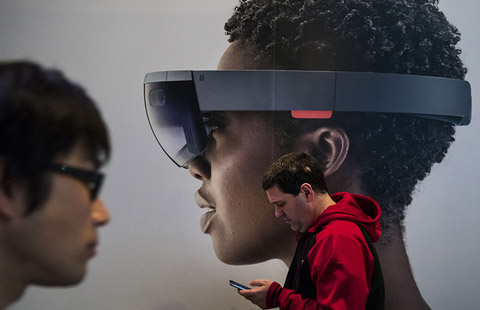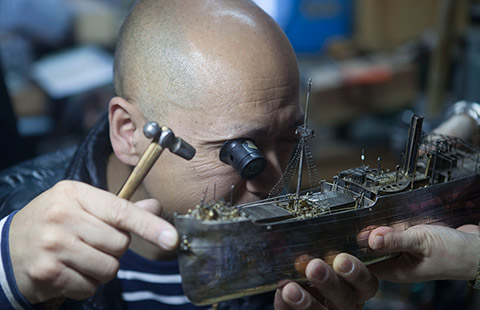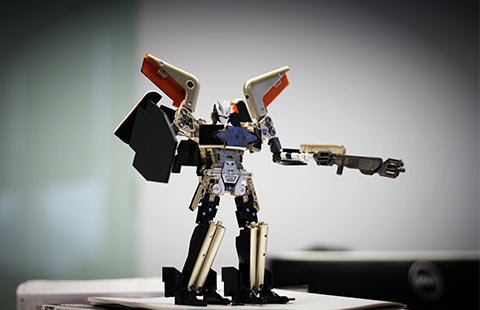Successful overseas operations of merger, acquisition by Chinese firms
(Xinhua) Updated: 2016-04-09 17:29BEIJING - Chinese enterprises have made a good fist at business acquisitions and project investment in overseas markets over recent years, not only contributing to promoting the growth local brands, but also creating jobs in the host countries.
Experts believe that the tie-up of abundant Chinese funds and distribution channels with advanced overseas technology and management expertise has sharpened competitiveness of the merged groups, generating an effect of one plus one being bigger than two.
The following is a brief list of successful Chinese merger and acquisition operations since 2005.
Jin Jiang
In February 2015, Chinese tourism giant Jin Jiang concluded a deal with US investment group Starwood to buy a string of French budget hotels.
The value of the agreement over Starwood's French subsidiary Louvre Hotels Group is believed to be worth over 1.2 billion euros ($1.36 billion).
Louvre Hotels Group owns some 1,200 hotels, including around 820 hotels in France under brands such as Campanile, Kyriad and Golden Tulip.
Jin Jiang, one of China's leading tourism operators, was ranked 14th internationally in terms of the rooms it offers in 1,700 hotels across 11 countries.
Anbang
In October 2014, Hilton Worldwide Holdings Inc announced that it has entered into an agreement with Anbang Insurance Group Co Ltd to sell the Waldorf Astoria New York hotel to the Chinese insurer.
Under the agreement, Anbang purchased the iconic luxury hotel for $1.95 billion.
As part of a long-term strategic partnership, Anbang will grant Hilton Worldwide a management agreement to continue to operate the property for the next 100 years, and the hotel will undergo a major renovation to restore the property to its historic grandeur.
The Waldorf Astoria New York, located in midtown Manhattan, is the flagship hotel of Hilton Worldwide's rapidly-expanding luxury brand, Waldorf Astoria Hotels & Resorts, and has been favored by visiting politicians, business leaders and celebrities.
Sanpower
In April 2014, Chinese conglomerate Sanpower bought a majority stake in British department store House of Fraser in a deal worth 480 million pounds ($677 million).
The Nanjing-based conglomerate acquired an 89 percent stake in the 165-year-old British brand through its Nanjing Cenbest subsidiary.
The deal was the largest overseas acquisition in the retail sector by a Chinese business, according to Sanpower's founder and chairman Yuan Yafei, who also described it as a "landmark transaction."
Shuanghui
In September 2013, China's largest pork producer Shuanghui announced the acquisition of its US counterpart Smithfield Foods with a deal valued at about $7.1 billion including debt.
Chairman of Shuanghui Wan Long said the acquisition provided Smithfield with the huge Chinese market through Shuanghui's distribution network while Shuanghui gained access to high-quality, competitively-priced and safe US products, as well as Smithfield's best practices and operational expertise.
Geely
In August 2010, Chinese carmaker Zhejiang Geely Holding Group announced it had formally completed a deal to buy Sweden's Volvo Cars from US auto giant Ford.
Geely, which first agreed to take over Volvo in March 2010, said it paid a total of $1.5 billion to Ford for Volvo, $1.3 billion in cash and an issued note of $200 million.
The final price was lower than the $1.8 billion price tag announced in March, and Geely said it reflected "adjustments in areas such as pension obligations and working capital."
Lenovo
In 2005, China's largest computer maker Lenovo and the IBM of the United States completed a deal to create the third-largest computing company in the world.
Under the $1.75 billion deal, Lenovo acquired the IBM's Personal Computing Division.
After the acquisition, Lenovo preserved the IBM's corporate culture and structure, keeping its two operational centers -- one in Morrisville, North Carolina, and the other in Beijing -- and retaining most of the management.
In October 2014, Lenovo Group further acquired the X86 server business hardware and related maintenance services business from the IBM, making it the world's third largest manufacturer of X86 servers.
Lenovo said it paid $1.847 billion in cash and allotted $182 million Lenovo shares to the IBM for the takeover.
More than 10 years on, Lenovo has grown into the world's biggest PC maker, amazing the world with an average operating income growth rate of 28 percent a year.
- Chinese police prohibit 5,452 fraudulent bank transfers
- Online shopping in rural China nearly doubles in 2015
- China's e-pharmacy eyes prescription drug for full-bloom growth
- Pimax launches 4K VR device in Beijing
- The making of Chinese tea
- Myanmar's rice export to China expected to rise after water festival
- Construction on China-Nepal border market begins
- Concerns over China's economic policies unfounded: leading economist

















